
Professor Henry Ma is the acting Head of Stroke at Monash Health and a senior research fellow at Florey Neuroscience and mental health institutes. He is the principle coordinator for START-EXTEND study cluster and he is also involved in a number of large investigator driven clinical studies. His main interests involve advance neuroimaging, acute stroke therapy and large clinical studies.

Vincent Thijs is the Head of Stroke at the Austin Health since 2015. He recently moved from Belgium where he headed the Stroke Unit at the University Hospitals in Leuven since 2001. He was a professor at the Department of Neurosciences at KULeuven and a research fellow at the VIB (www.vib.be). He was twice awarded the prestigious Clinical Investigatorship by the FWO, the main research fund in Flanders.
His research interests include acute stroke treatment, stroke prevention, young stroke, the genetics of atrial fibrillation and stroke, and neuroimaging. Professor Thijs completed a PhD on magnetic resonance imaging in acute stroke. He has served on the steering committee of several acute stroke clinical trials (WAKE-UP, SCAST, MITI-IV and AXIS) and secondary prevention trials (SOCRATES, RE-SPECT ESUS and REACT-AF).
Professor Thijs is a member of the International Stroke Genetics Consortium and an editorial board member of the Stroke journal, the European Stroke Journal and the International Journal of Stroke. He has authored or co-authored more than 170 peer-reviewed papers on stroke related topics.

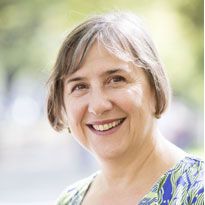
Julie is a Principal Research Fellow at the Florey Institute of Neuroscience and Mental Health, Melbourne and Clinical Head of the Stroke Division and leader of the AVERT Early Intervention Research Program. This large multidisciplinary team of researchers are committed to the development and testing of new, rehabilitation interventions to reduce the burden of stroke related disability. The AVERT trial sits at the core of her program and is the largest, international trial of rehabilitation ever conducted.
Her research has fuelled the worldwide conversation about early rehabilitation resulting in ‘early mobilisation’ recommendations included in 9 international clinical practice guidelines and process of care indicators included in stroke care quality registries.
She is Chief Investigator on the NHMRC Centre of Research Excellence in Stroke Rehabilitation and Recovery that outlines an interdisciplinary program of work from bench (discovery) to bedside (implementation).
Julie is involved in gender equity initiatives at the Florey and co-founded the Women in Science Parkville Precinct group.
Julie is a world leader in the field of stroke recovery. She has set new standards for the conduct of rehabilitation trials at a global level which are likely to herald a new dawn for rehabilitation research.

A/Professor Bernard Yan holds dual clinical appointments at the Royal Melbourne Hospital (RMH) as Neurointerventionist and Neurologist. He is an associate professor of the University of Melbourne. He is the Director of Telestroke Service (RMH), Chair of University of Melbourne Neurology Subspecialty Course in China and Asia Pacific Committee (Australian and New Zealand Association of Neurology) He is the principal investigator and on the steering committee of the Interventional Management of Stroke Study 3 (IMS 3).This study compares the efficacy of intra-arterial clot retrieval with intravenous thrombolysis. He is also the principal investigator of the Australian branch of the Intra-arterial Plasmin for Ischaemic Stroke Study.
His research interests include the development of endovascular devices for the treatment of acute stroke and aneurysms. He is the co-inventor of several endovascular devices. He is a supervisor to medical research fellows from the University of Melbourne and also to overseas neurology research fellows.
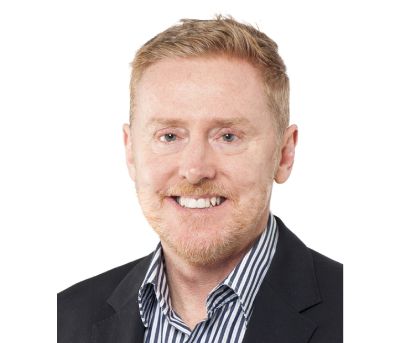
A/Prof Mark Parsons is a Staff Specialist in Neurology at John Hunter and Calvary Mater Hospitals Newcastle and Director of the Acute Stroke Unit at the Calvary Mater Hospital. He trained in Neurology and Stroke in Newcastle and Melbourne and has strong interests in clinical stroke research, especially acute imaging and thrombolysis. He is the chair of the Hunter New England Human Research Ethics Committee and National Coordinator for the Safe Implementation of Thrombolysis (SITS) registry.
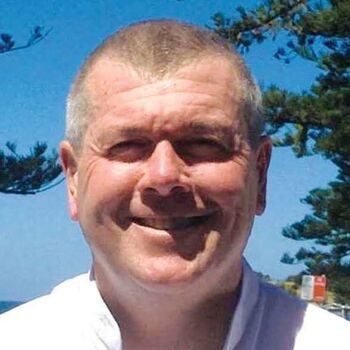
Dr Denis Crimmins is a Consultant Neurologist at the Gosford & Wyong Hospitals, Senior Lecturer at Newcastle University, Director Central Coast Stroke Services, and Director of Central Coast Neuroscience Research Group. He has also been Past Chair of Australian Acute Stroke Guideline Committee, Past Chair Research Committee Central Coast Health & Past Director of Stroke Services NSW.
Dr Crimmins has been involved with numerous stroke studies over the last 15 years, with acute interventions and with secondary prevention. These latter studies include the PROGRESS, SPARCL, ONTARGET, PROFESS, RELY and ENGAGE studies.
He has also been involved with numerous academic studies looking at the relationship between atrial fibrillation and stroke, delivery of thrombolytic therapy and the role of depression post stroke.
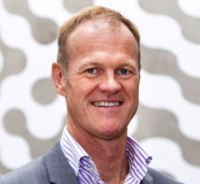
Prof Chris Bladin graduated from Flinders University Medical School, Adelaide in 1984. He completed specialist training in Neurology at the Austin Hospital in Melbourne in 1991 followed by a Stroke Research Fellowship at Guy’s Hospital, London and in 1992 a Stroke Research Fellowship at University of Toronto, Canada. He returned to the Austin Hospital, Melbourne and in 1998 was appointed Head of Unit, Dept Neurosciences Box Hill Hospital (Monash University). He is Medical Director of the National Stroke Foundation of Australia and Chairperson of the DHS Victorian Stroke Clinical Network Committee.
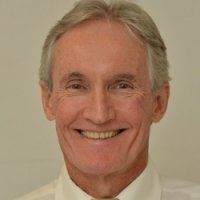
Professor Graeme J Hankey is a Consultant Neurologist and Head of the Stroke Unit at Royal Perth Hospital, Western Australia, and Clinical Professor, School of Medicine and Pharmacology, The University of Western Australia. His main research interests include epidemiological studies and clinical trials of treatment strategies for acute stroke and stroke prevention (such as the Perth Community Stroke Study, for which he is a co-principal investigator, the Health in Men Study, for which he is a co-principal investigator, and the VITAmins To Prevent Stroke [VITATOPS] trial, for which he is the principal investigator).
He is a member of numerous professional associations, including the Board of the World Stroke Organisation, Scientific Council of the American Stroke Association, and the Association of British Neurologists. He was a Director and Councillor of the Australian Association of Neurologists between 2004 and 2007.
The author or co-author of nine books, 20 book chapters and nine Guidelines on aspects of stroke and clinical neurology, Professor Hankey received the 1997 Royal Society of Medicine Medical Book Award, Advanced Author Book category, for Stroke: A Practical Guide to Management (Blackwell Scientific Publications, Oxford), and the 2006 MervynEadie award of the Australian Association Neurologists for career achievement in neuroscience research. He also shares his literary expertise as editorial consultant at The Lancet and The Lancet Neurology, associate editor of Stroke Treatment and Prevention, and member of the editorial boards of Stroke, the Cochrane Stroke Review Group, Cerebrovascular Diseases, the International Journal of Stroke, Practical Neurology, Neuroepidemiology, International Review of Thrombosis, Australian Journal of General Practice, Cerebrovascular Disease Foreign Medical Sciences, and China Journal of Stroke. He was associate editor of Stroke from 2000-2010. He was awarded the Western Australian Premier’s prize for achievement in science in 2006 and was nominated by the Premier of Western Australia for Australian of the Year 2008.
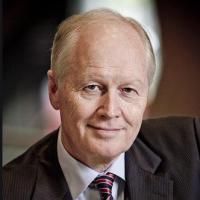
Geoffrey Alan Donnan is Professor of Neurology at the University of Melbourne, and the Director of Florey Neuroscience Institutes. Dr. Donnan received his doctor of medicine degree from Melbourne University. He performed his residency at Royal Melbourne Hospital and was a research fellow in neurology at Austin Hospital, followed by fellowships in cerebrovascular research at Massachusetts General Hospital and neurology at Harvard University. He became Director of the Department of Neurology at the Austin in 1993 and is currently Director of the Florey Neuroscience Institutes and Professor of Neurology, University of Melbourne (Department of Medicine) in Australia.
He was founder of the National Stroke Research Institute, co-founder of the Australian Stroke Trials Network (ASTN) and Neurosciences Trials Australia (NTA). His major interests are in neuroimaging aspects of stroke and clinical trials. Professor Donnan has published over 400 papers in peer reviewed journals, over 60 book chapters, edited 4 books and has been Lecturer or Visiting Professor in numerous countries. He is Past President of the Stroke Society of Australasia, the Australian Association of Neurologists and the World Stroke Organization. He was the recipient of the American Stroke Association William Feinberg award for excellence in clinical stroke research in 2007. He has also delivered the Priscilla Kincaid Smith Oration for the Royal Australasian College of Physicians in 2007 and received the MJ Eadie Award for Career Achievement in Neuroscience Research at the Australian and New Zealand Association of Neurologists in 2008. He was awarded the Bethlehem Griffiths Research Foundation medal for outstanding contribution to international stroke research in 2008.

Stephen Davis is Professor of Neurology, University of Melbourne, Divisional Director of Neurosciences, Director of Neurology and Head of the Stroke Service at Royal Melbourne Hospital. He is Past President of the Stroke Society of Australasia, chaired the 4th World Stroke Congress, and was Chairman of the Education Committee for the World Congress of Neurology 2005. Professor Davis has extensive experience as a member of steering committees of international stroke trials, both industry-sponsored and investigator-driven. He co-chaired a number of investigator-driven trials including the ongoing EPITHET and ARCH trials as well as co-founded the Australasian Stroke Trials Network and Neuroscience Trials Australia. From 2002 to 2005 Professor Davis chaired the Royal Melbourne Hospital Human Research Ethics Committee. He is an Honorary Principal Fellow of the Howard Florey Institute. He has published over 200 papers, 21 book chapters, and co-authored 2 texts, ‘Interventional Stroke Therapy’ and ‘Magnetic Resonance Imaging in Stroke.’
He has chaired or served on numerous national and international committees. He has extensive experience in cerebrovascular research, with interests in acute interventional therapies, new magnetic resonance imaging techniques in brain ischaemia, as well as secondary prevention and brain recovery. He is a member of six editorial boards including Stroke, Cerebrovascular Disease, Journal of Neuroimaging and Journal of Clinical Neuroscience. He has served on numerous national and international steering committees for acute stroke and secondary prevention trials and is a member of the Steering Committee of the Novo Nordisk F7ICH-1371 trial in intracerebral haemorrhage and Astra Zeneca NXY 059 (Cerovive) in acute stroke.



